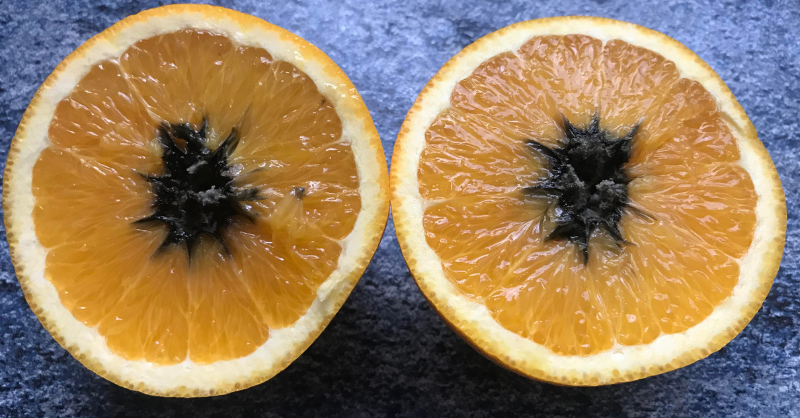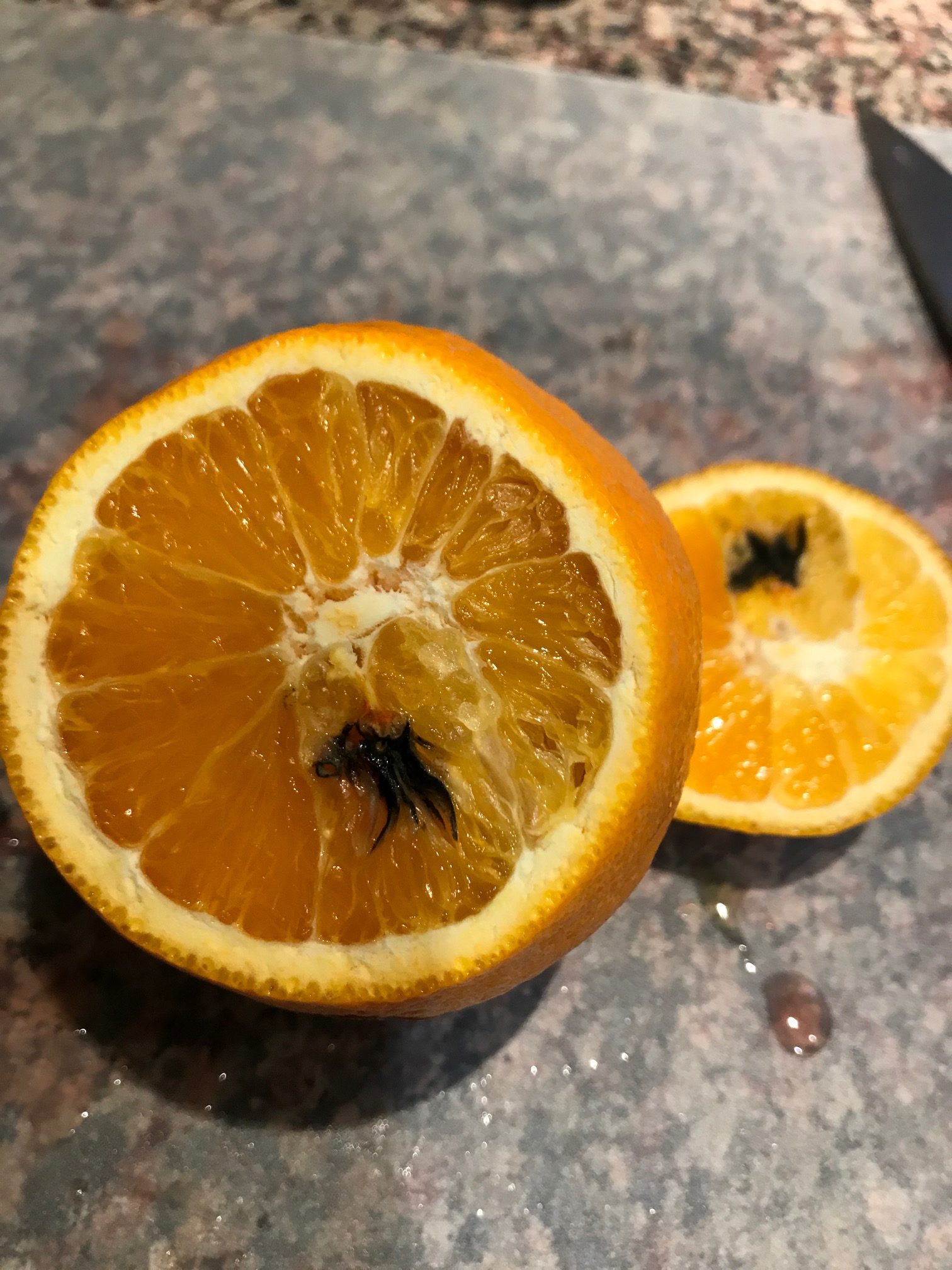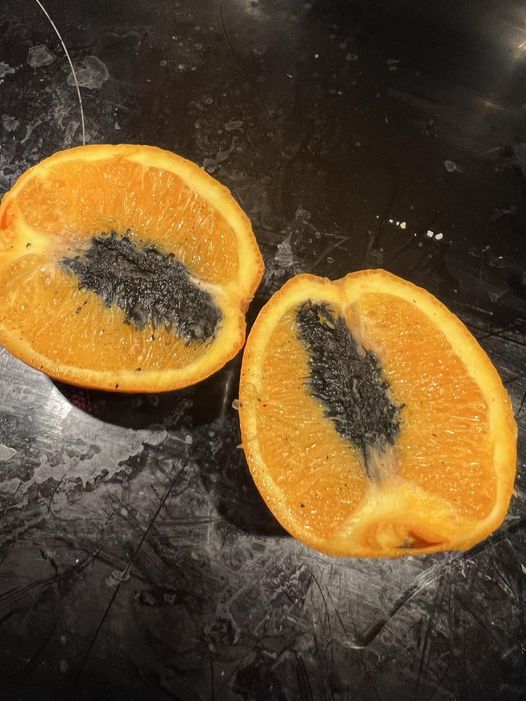The Moldy Orange Mystery
The Unsettling Discovery
Have you ever sliced into a juicy orange, only to find an unexpected black spot inside? Recently, a curious homeowner shared a photo of such an orange in a home tips Facebook group, sparking a lively discussion. The orange had a peculiar black spot and mysterious stuff inside, leaving the homeowner puzzled.
The Fungus Revelation
Closer inspection revealed that the dark substance inside the orange was a type of fungus or mold. This discovery raised an important question: Is it safe to eat an orange with black inside?

The Safety Verdict
The short answer is no. While it might be tempting to salvage the unaffected parts, caution is crucial when dealing with mold due to potential health risks.
The Challenge of Identifying Mold
Identifying mold by sight alone is challenging. Different types of mold appear in various colors, textures, and patterns, making accurate diagnosis difficult for the untrained eye. In this case, the black stain on the orange clearly indicated fungal growth.
Mold and Its Environment
Mold thrives in damp, humid conditions, and fruits like oranges provide an ideal environment. Spores can penetrate the fruit’s skin and proliferate inside, creating a breeding ground for potential health hazards. Some molds produce mycotoxins that pose serious health risks when ingested.

The Safe Approach
To err on the side of caution, discard any fruit showing signs of mold. Consuming mold-contaminated food can lead to health issues. Mold spreads quickly, and even if visible signs are limited to one section, the entire fruit might be contaminated.
Impact on Taste and Quality
Mold affects the taste and quality of fruit. A moldy orange won’t provide the refreshing flavor and nutritional benefits associated with citrus fruit. Mold alters the texture, aroma, and overall palatability, diminishing the eating experience.

Prevention Tips
To avoid moldy surprises, practice proper storage and handling. Store fruits in a cool, dry place, and promptly refrigerate leftovers. Regularly inspect fruits for signs of spoilage and discard any that appear suspect.
The Facebook Group Consensus
The Facebook group discussion highlighted the importance of caution with moldy food. Although the community couldn’t inspect the homeowner’s orange physically, their collective wisdom emphasized the universal rule: when in doubt, throw it out. Your health and taste buds will thank you for making the safe choice.

